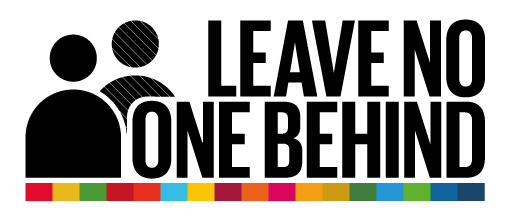As the World Marks International Day of Persons with Disabilities (December 3)
Sewa Gbani is a 17-year-old girl living in Nabu, a community in the Nkwanta North District of the Oti Region of Ghana. Her favourite pastime is singing. Sewa often cries when singing because, though she feels like dancing while singing, she is unable to. This is because she’s been living with a physical disability since childhood. Sewa Gbani’s parents are peasant farmers who can ill afford to send her to school owing to her peculiar circumstances of gender, poverty and disability.
The story of Ajoa Kumah, a 19-year-old woman who lives with her parents in Sibi, a village in the Nkwanta North District of the Oti Region, is not far removed from Sewa Gbani’s: Location, gender and disability are the common parameters here too. Ajoa’s parents’ poverty, coupled with traditional norms that support early marriage of girls and favour boys for educational rights and privileges, have ruled Ajoa out of school from infancy. Diagnosis with epilepsy after falling a couple of times some years back while returning from the local market, has compounded her problems of physical disability and social exclusion.
Sewa and Ajoa are among the eighty percent of the global total of one billion people with disability who live in developing countries. They also fall into the category of one in every five women likely to experience disability in life, and to an extent, the ten percent of every child living with a disability.
“Disability Inclusion is an essential condition to upholding human rights, sustainable development, and peace and security. It is also central to the promise of the 2030 Agenda for Sustainable Development to leave no one behind. The commitment to realizing the rights of persons with disabilities is not only a matter of justice; it is an investment in a common future.
“The global crisis of COVID-19 is deepening pre-existing inequalities, exposing the extent of exclusion and highlighting that work on disability inclusion is imperative. People with disabilities are one of the most excluded groups in our society and are among the hardest hit in this crisis in terms of fatalities.
“Even under any circumstances, persons with disabilities are less likely to access health care, education, employment and to participate in the community. An integrated approach is required to ensure that persons with disabilities are not left behind.” (Credit: United Nations)
The Strategic Approaches to Girls’ Education (STAGE) Project of World Education, Inc. (WEI), funded by the UKAID’s “Leave No Girl Behind” programme, is one such integrated approach. STAGE combines two mutually supportive tracks for highly marginalized girls – formal school and informal learning – to bring a comprehensive approach to the education of girls. The main objective of this intervention is to lower the barriers that such girls face at the individual, community, school, and systemic levels.
The STAGE project targets seven regions in Ghana where high levels of poverty, combined with deep-seated traditional and social norms, result in negative impacts on women and girls.
STAGE targets girls in these areas who are highly vulnerable and systematically marginalized due to factors such as early marriage, teen pregnancy, disabilities, and poverty.
The project collaborates closely with relevant government institutions, development partners, community groups, CSOs/NGOs and traditional leaders. The project is structured to simultaneously work to sensitize communities and advocate at national policy level to challenge contextual barriers affecting girls’ education. In order to do this, STAGE works to establish peer education models involving adolescent girls and boys as allies; works with youth and adult males in community sensitization campaigns to promote positive behavior change; and engage both the public and private sectors to provide opportunities beyond the traditional and Accelerated Learning Programs (ALP).
Ajoa believes she has gained a lot from the project. Narrating how she has benefited, she said “The STAGE project did not only provide me with the opportunity to learn literacy, numeracy and life skills but also a vocation… I am very happy being a STAGE learner, learning together with my age-mates, especially among those who used to identify me by my condition, but one who has now mastered many trades. I now know that neglecting someone with [disability] is totally wrong and parents should not do that. I am now ‘Ajoa, the Soap-maker’ and not ‘Ajoa, the epileptic’.”
Thanks to the community sensitization of STAGE, people in Sibi village now know about epilepsy and other conditions and have accepted living with them.
“Disability inclusion will result in a COVID-19 response and recovery that better serves everyone, more fully suppressing the virus, as well as building back better. As the world marks International Day of Persons with Disabilities under the theme, ‘Building Back Better: Towards an inclusive, accessible and sustainable post-COVID-19 world by, for and with persons with disabilities’, it is the aspiration of the United Nations, World Education, Inc. and other stakeholders that more agile systems capable of responding to complex situations and reaching the furthest behind first, would become the norm. (Credit: United Nations)
REFERENCE
- Accessible Healthcare for All – Message to be shared by WEI and our partners on Radio Discussions, Facebook Post and During the Graduation Ceremonies
- My HOPE: From Neglect to Empowerment in the Case of Sewa – Strategic Approaches to Girl’s Education (STAGE) Project
- Ajoa Kumah: ‘The Epileptic’ to ‘The Soap Maker’










